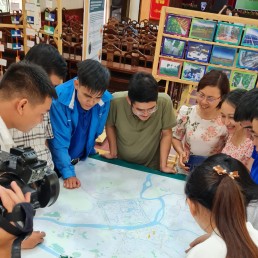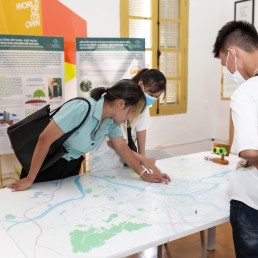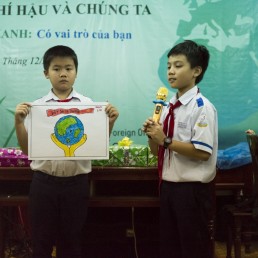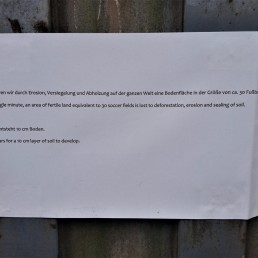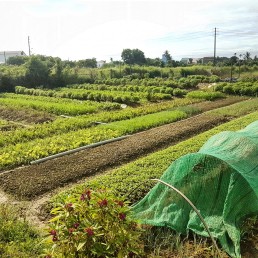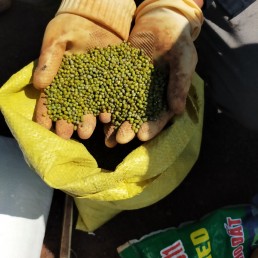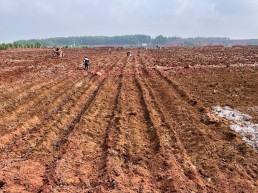Importance of resource conservation for people and the environment
Natural resources such as soil, water, air, animals and plants are essential for the functioning of natural ecosystems and form the basis of our lives. Together with mineral and fossil raw materials, they are also an essential part of the global economic cycle. However, their use and extraction can be associated with environmental destruction and negative social impacts. A closer look at current global challenges such as growing inequality, loss of biodiversity, economic crises and climate change reveals that the use of natural resources often plays a central role. The increasing demand for natural resources due to population growth, changing consumer behavior and the ever-increasing pursuit of economic growth are also exacerbating concerns about the availability of and access to a finite supply of non-renewable natural resources. After all, the resources on our planet are limited and often unevenly distributed. Human activities to extract natural resources therefore repeatedly lead to the exploitation of deposits, the destruction of sensitive habitats (such as rainforests and oceans), the overbuilding and degradation of soils and landscapes and the reduction or pollution of water resources. In addition to the negative effects on nature and the environment caused by the exploitation of natural resources, social problems are also becoming increasingly prevalent worldwide, such as disputes over control and access to natural resources, which in some countries are the cause of poverty, social unrest, political instability and, in some cases, armed conflict. The protection and sustainable use of natural resources to preserve their functions for ecosystems and people is therefore of great importance.
Our activities on the topic of resource conservation
For us, resource conservation means protecting and improving the condition of the environmental assets soil, water, air, climate, animals and plants as well as the interactions between them, such as the landscape and biodiversity. At the same time, it is important to prevent negative environmental impacts on people and their health caused by the use and extraction of natural resources. UfU focuses primarily on the following topics: Climate protection, soil protection, contaminated site management, water management, nature-based solutions for sustainable urban development, renaturation and bioeconomy. With our project activities, we address stakeholders from various countries and sectors in a practice-oriented manner. The project regions mainly comprise Central and Eastern Europe and South East Asia. We carry out national and international, innovative pilot projects in the field of resource conservation with a focus on science communication and science outreach, capacity building on resource conservation issues, stakeholder analysis and policy advice, networking of different actors, advice on the implementation of environmental legislation and ecosystem analysis.
Contact person

Fabian Stolpe
Environmental law & participation
M.Sc. Environmental planning,
Deputy Head of Environmental Law & Participation
Phone: +4930 4284 993 43
E-Mail: fabian.stolpe@ufu.de
Publications
Nothing found.
… all publications in this subject area
Current UfU projects in this field:
Cities are both drivers of global warming and increasingly affected by its effects. While a large population and energy-intensive infrastructure and…
Im Pilotprojekt Energiepflanzenanbau auf stillgelegten Bergbaustandorten in Vietnam (CPEP – Climate Protection through Energy Plants) wurde von 2015…
Das Projekt CapaViet3 informiert über Möglichkeiten zur Sanierung von kontaminierten Flächen in Vietnam. Anhand eines Praxisbeispiels erarbeiten…
Ukraine is facing major challenges in the management of its rivers. The two selected project regions: The Ternopil region in the northwest of Ukraine…
With CapaViet 2, UfU is extending its involvement in contaminated site management in Vietnam. Through a combination of measures in the areas of…
News from this subject area:
Nothing found.




